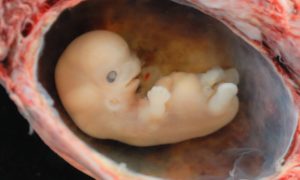In 2013, there was international outrage when a woman in Belgium underwent assisted suicide for anorexia; there was a similar response around the world when a teenaged girl suffering from anorexia was merely believed to have been euthanized. But in just a few short years, assisted suicide has become more and more acceptable, and when a woman in the United States requested assisted suicide because of her anorexia, there was barely any outrage.
Alex Schadenberg, of the Euthanasia Prevention Coalition, highlighted a case declared to be “ethical” by the American Clinicians Academy on Medical Aid in Dying (ACAMAID) “Ethics Consultation Service.” In the case report, it was explained that the female patient requested assisted suicide from her palliative care physician after participating in numerous anorexia treatment programs for years.
Her eating disorder physician, who participated in the consultation call, felt that, although the patient had not accepted or agreed to the “gold standard” treatment of full weight restoration to evaluate brain function, she was terminally ill. This physician as well as the consulting psychiatrist felt that the patient had decisional capacity. The patient was enrolled in hospice and lived with her family who supported her request to access aid in dying.
One of the potential prescribing physicians felt uncomfortable with the request, which is why the request for an ethics consultation with ACAMAID was made. ACAMAID responded by noting first that, in the United States, there have been no previous cases of someone requesting assisted suicide for anorexia in the United States before this. They further added that, medically speaking, there is not a consensus as to whether an eating disorder patient can be declared “terminally” and “irreversibly” ill, and that furthermore, people who are considered terminally ill are not required to exhaust all possible treatment options before undergoing assisted suicide.
READ: Belgian woman suffering from anorexia euthanized
ACAMAID consulted three different physicians who specialize in eating disorders, with two out of three disagreeing that assisted suicide is appropriate for eating disorder patients.
The first physician found it ethically reasonable to support medical aid in dying for a patient who was clearly defined as “end stage” by her treating physician and was found to have decisional capacity by a qualified psychiatrist. The second physician felt that the patient did not meet the criteria of “irreversible” and “terminal” illness as the terminal nature of her clinical condition was her refusal to accept nutrition and not a terminal disease that she could not control.
The third physician felt that in chronic, enduring, severe anorexia nervosa, some patients stand to benefit little from further treatments and have the right to refuse further involuntary treatments and should then be allowed and ethically supported to have a palliative plan of care, but stopped short of accepting aid in dying as an ethically appropriate option.
Despite this, ACAMAID declared that “[i]f the patient’s eating disorder treating physician and evaluating psychiatrist agreed that she had a “terminal disease” and retained decision-making capacity, she would meet those requirements of the aid in dying statute in her jurisdiction.”
While it’s not clear whether this woman actually died, there are many troubling aspects of this case, beginning with the notion that an actively suicidal person could be declared sane enough to make life-ending decisions. On top of that, both the woman’s physician and her family agreed with her decision to undergo assisted suicide, despite — by the physician’s own admission — the fact that she had not undergone the weight restoration necessary to restore brain function.
Research has found that persistent anorexia can lead to brain damage, with one study finding that anorexia-induced brain damage can cause depression, schizophrenia, and addiction. It can also lead to problems with cognitive functioning, as well as potentially cause dementia-like symptoms, problems with language, and seizures.
This should directly call into question whether the woman is, in fact, mentally stable enough to make a decision to end her own life. But because she is seriously ill, that is hand-waved away. The acceptance of both her doctors and her family with regard to the woman’s suicidal plans as if they are valid and rational should raise concerns about whether she is being pressured or made to feel like she is a burden.
After all, if an able-bodied, otherwise healthy person announces they want to die, family members and physicians do all they can to convince the person their life still has value. But when someone has a persistent disease or disability, it’s suddenly acceptable for the person to be killed.
“Like” Live Action News on Facebook for more pro-life news and commentary!







